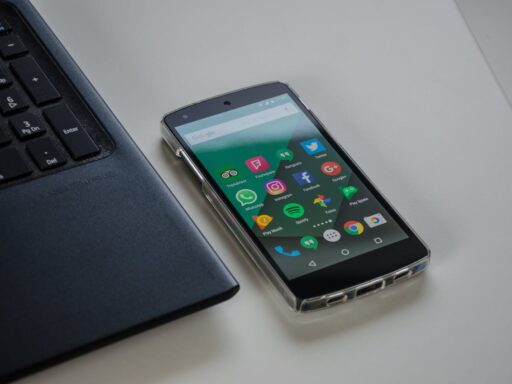In the realm of air purifiers, both an Ionizer and Air Purifier have the same job — to eliminate contaminants from your indoor air that are highly abysmal for those suffering from respiratory problems and allergies.
If you plan on purchasing an air purifier for your home, knowing the discernible difference between the two is imperative as both types of air purifiers are marketed as effective for removing allergens, contaminants, and impurities from the air.
Though both the products are identical in terms of job, they operate differently, and finding the difference between them can be quite a conundrum.
Since there can be no compromise on the air quality that we breathe, we’ve created this article spotting out the significant difference between the two along with our opinion on which one to choose.
So without further ado, let’s get started.
1. What are Air Purifiers?
Air purifiers have a filter material that traps all the contaminants, allergens, and pollutants in the air, such as pollen, animal dander, dust, and smoke. These contaminants are most likely to cause severe problems to individuals who have asthma or any sort of allergy.
These are also dangerous to elderly peoples, kids, and pets. Talking about High-efficiency Particulate Air Filters (HEPA), these purifiers are certified by the Department of Energy in the US to be efficient in removing 99.97 % of pollutants that are 3 microns or larger in diameter.
Not only that, but they are also very efficient in trapping all the harmful particles like dust, mold spores, pollen, and smoke. There are filters without HEPA ratings, and these filters can easily trap dander and dust, but the caveat is they allow smaller particles such as pollen and spores that can cause problems.
Some air purifiers also use carbon filters to remove some gas pollutants and odor from the surrounding air.
Read next: Reasons Why Water Purification is Mandatory
2. How about Ionizers?
Ionic Air Purifiers or Ionizers work differently. They release negative ion particles in the air to take down the contaminants and pollutants by imparting their charges to the harmful particle.
Meaning the negative ions give their charge to contaminants, and they end up sticking together or on the objects in the room or wherever the ionizer is kept.
Ionizers are great for eliminating small particles such as bacteria from your air, but they cannot trap particles as HEPA air purifiers do. Air purifiers can easily trap dust, dander, smoke, and so forth, but ionizers lack this feature — and thus, they can prove harmful to asthma and allergy sufferers.
3. How Do Both of These Air Purifiers Work?
As far as the HEPA air purifier is concerned, it works with a fan inserted in the device, which pulls all the air from the surrounding for purification.
Once the device pulls the air, it goes through a pre-filter that clears large particles such as hairs, dust, and so forth. After it’s cleaned, the air then passes to a HEPA filter that cleans up small particles that are of size 0.3 microns.
Lastly, the air will then pass through the activated carbon filter that removes VOC and odors while releasing fresh air into the surrounding.
As for the Ionic air purifier, it operates by sending negatively charged ionic particles into the air to hunt all the contaminants.
The hunted particles will end up on the objects of your room, such as the floor, doors, walls, furniture, plates, and so on.
Ionizers have two drawbacks; first of all, the released ions react with the oxygen in the air and form ozone gas, which can be harmful.
And the other one is all the hunted contaminants can possibly bounce back in the air, and everything can back to square one.
Read next: Advantages of Using Water Purifier
4. Are These Air Purifiers Safe?
With a HEPA air purifier, you have nothing to worry about. Not only does it generate no ozone in the atmosphere, but it also collects most of the larger as well smaller contaminants.
It works well with our health and doesn’t cause any harm.
Talking about the ionizers, they release ozone that can prove harmful to your lungs if used for prolonged periods.
That said, many ionic air purifier manufacturers will glibly claim that their products release ozone at a safe level to consume and won’t cause much harm to your health.
Well, for starters, being the consumer, it should be our responsibility to take care of our safety. As safe as this sounds, according to an article at Reuters — research points out that even the safe level consumption of ozone can cause problems with our lungs to operate.
Source:- reuters.com
You should never use an ionizer for prolonged periods, and never should you sleep with an ionizer ON, period. The build of ozone can be dangerous to our health.
5. HEPA Air Purifiers VS Ionic Air Purifiers
To make things simpler, here is a table and some factors that will help you in making the decision.
| HEPA Air Filter | Ionizer |
| Works by pulling the air in from the surroundings and purifying it. | Works by releasing negatively charged particles to hunt down impurities |
| Traps the contaminants in the filter | Beats the contaminants on the surface in the room |
| It doesn’t generate any ozone | Generates ozone at safe levels |
| Area coverage is around 800 sq ft | Area coverage is around 3,500 sq ft |
| The initial cost is high, just like the maintenance of changing the filter | The initial cost is low, and there is no maintenance cost |
1. Cost
When it comes to cost, you can see that ionic purifiers are not only cheaper, but they also don’t have much maintenance like HEPA air filters. That said, many standalone ionic purifiers are banned in some countries and sometimes even hard to find.
HEPA air filters require frequent changing of filters annually and maintaining it, so it costs you some bucks, let alone the initial purchasing cost is also high.
2. Area Coverage
HEPA air filters can cover up to 1,500 sq ft; that’s the biggest we’ve ever seen. The more area coverage, the better your air purifier can filter contaminants and pollutants.
As for the ionic air purifier, it has a considerable area coverage of 3,500 sq ft, and that’s excellent. If better area coverage is your concern, then an ionizer is a perfect choice.
3. Performance
When talking about performance, HEPA air filters are way more efficient and reliable; they can effectively clear out large and small particles from the air. With the help of a carbon filter, they can even remove odors and VOC.
Not only limited to that, but they also come with many features such as Wifi control, timer, speed-control, turbo mode, and many more.
Clearly, you would not find an ionizer with such features, that too, if you find an ionizer.
Read next: How to Test Air Quality in Your Home (and Improve It)
Wrapping Things — So Air Purifier or Ionic Air Purifier Which is Better?
It should be evident by now that if there’s any winner, it’s none other than the HEPA air filter. The merits outweigh the demerits of this device, and they are really good at removing allergens, pollutants, impurities, pet dander, pollens, and so forth.
Besides that, HEPA air filters are safe to use, unlike ionizers. Though they have less area coverage and more cost, the quality and features speak for themselves.
So, according to us, Air purifier is way better than an ionizer. That said if you were to go for an ionizer, make sure to get an air purifier with an ionizer built-in that you can turn on and off without affecting your air filter.
This doesn’t mean that Ionizers are wrong; they are helpful devices, whether standalone or combined in your air purifier. Just make sure you use it for short durations and turn it off.
Our final say is — HEPA Air filter, and we take health a tad bit seriously.
What’s your take?
Let us know by shooting in the comment section!






